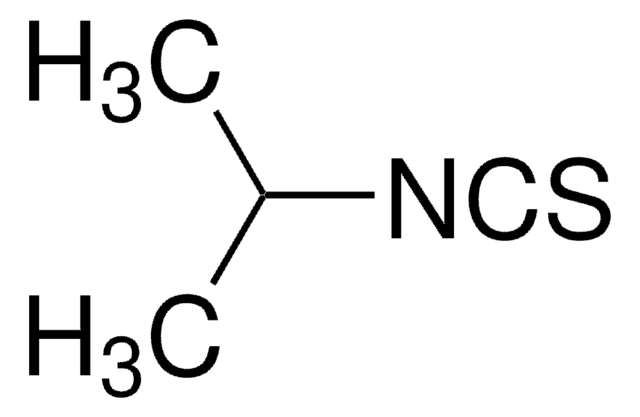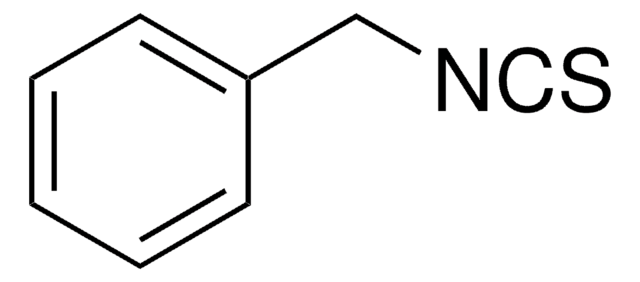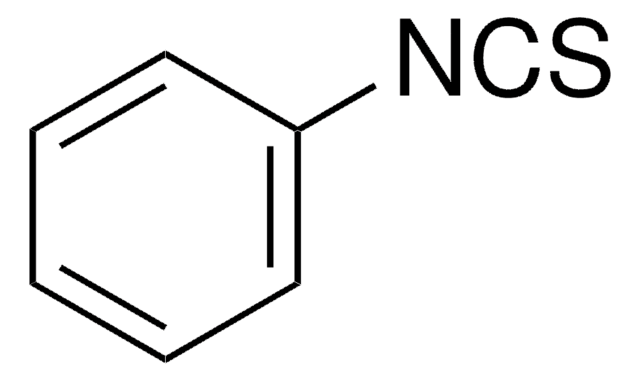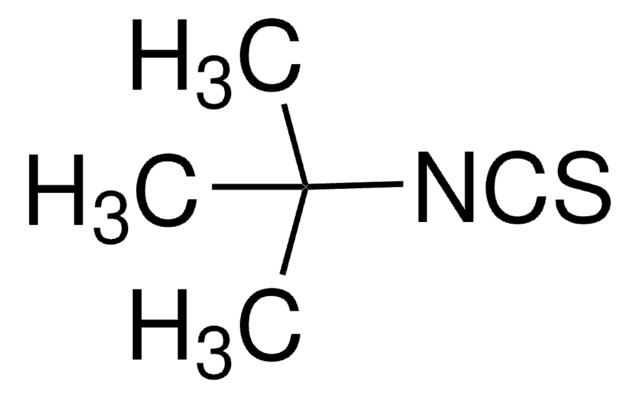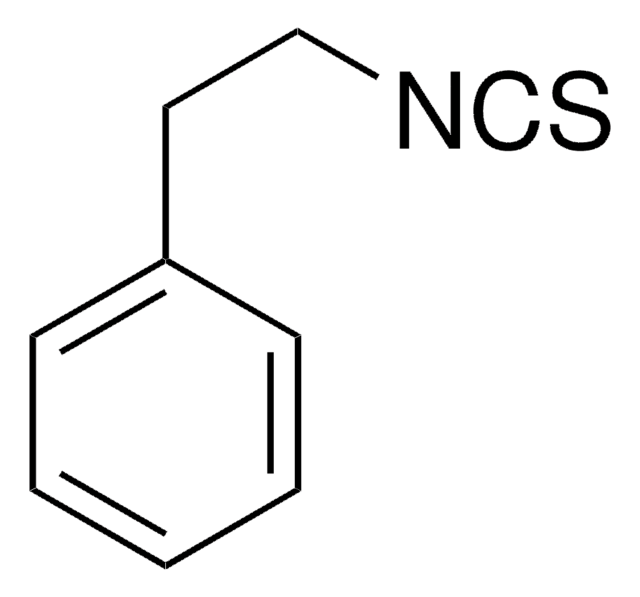253790
Butyl isothiocyanate
99%
Sinónimos:
NSC 194808
About This Item
Productos recomendados
Ensayo
99%
Formulario
liquid
índice de refracción
n20/D 1.5 (lit.)
bp
70-71 °C/35 mmHg (lit.)
densidad
0.955 g/mL at 25 °C (lit.)
grupo funcional
amine
isothiocyanate
cadena SMILES
CCCCN=C=S
InChI
1S/C5H9NS/c1-2-3-4-6-5-7/h2-4H2,1H3
Clave InChI
LIMQQADUEULBSO-UHFFFAOYSA-N
¿Está buscando productos similares? Visita Guía de comparación de productos
Categorías relacionadas
Descripción general
Aplicación
Palabra de señalización
Danger
Frases de peligro
Clasificaciones de peligro
Acute Tox. 4 Dermal - Acute Tox. 4 Inhalation - Acute Tox. 4 Oral - Eye Dam. 1 - Resp. Sens. 1 - Skin Corr. 1B - Skin Sens. 1
Código de clase de almacenamiento
6.1A - Combustible acute toxic Cat. 1 and 2 / very toxic hazardous materials
Clase de riesgo para el agua (WGK)
WGK 3
Punto de inflamabilidad (°F)
150.8 °F - closed cup
Punto de inflamabilidad (°C)
66 °C - closed cup
Equipo de protección personal
Faceshields, Gloves, Goggles, type ABEK (EN14387) respirator filter
Elija entre una de las versiones más recientes:
¿Ya tiene este producto?
Encuentre la documentación para los productos que ha comprado recientemente en la Biblioteca de documentos.
Los clientes también vieron
Nuestro equipo de científicos tiene experiencia en todas las áreas de investigación: Ciencias de la vida, Ciencia de los materiales, Síntesis química, Cromatografía, Analítica y muchas otras.
Póngase en contacto con el Servicio técnico
